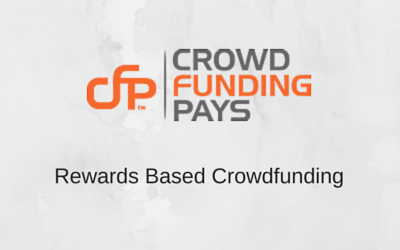We officially have crowdfunding down to a science.
Researchers Ferdinand Thies and Michael Wessel dedicated themselves to over a year of studying rewards-based crowdfunding campaigns, providing scientific evidence to many claims that had been mere conjectures up until now. After following 6,340 funding projects through their entire campaign, the researchers concluded a variety of findings about platform behaviors, emphasizing factors that cause campaign success. That means we can all succeed better and make more money, backed by science! Well, theoretically.
Thies (left) and Wessel (right) are both completing their doctorate studies in platform ecosystems with a focus on crowdfunding.
Naturally, the study included the comparison between the two crowdfunding giants, Kickstarter and IndieGoGo. Thies and Wessel found that the average donation on Kickstarter was higher than that on IndieGoGo due to Kickstarter’s fixed funding policy (where crowdfunders receive no money if their campaign is unsuccessful) as opposed to IndieGoGo’s flexible funding option (where crowdfunders can receive any funds raised). That makes sense, because backers feel more confident with the idea that their money will only be spent if the project’s goals can be fulfilled.
The pair also established the monumental influence of social media on crowdfunding campaigns. After analyzing both Facebook and Twitter posts related to the campaigns, they concluded that “Electronic word-of-mouth (eWOM) is a decisive factor in the success of crowdfunding campaigns and a wave of social buzz will deliver sustainable support for the campaign.” Though all social media is positive publicity, they did find that Facebook has a significantly greater influence than Twitter. According to Wessel, “Recommendations are based on trust and this is more pronounced on Facebook due to the closer social connections between Facebook users.” Because Facebook friends are more likely to be personal relationships whereas a Twitter follower plays a more anonymous, “cyberfriend” role, individuals are more likely to trust content from Facebook posts.
Interestingly, the beginning of the campaign is extremely telling to its future success. Wessel stated that, “Three-quarters of those campaigns that raise one quarter of the funding goal within the first week of the campaign are also able to achieve their final target. Only 10 percent of those campaigns that fail to clear this hurdle prove successful.” That means that regardless of how engaging a campaign’s video or social media is, if they don’t knock out a quarter of their funding goal within the first week, there’s a 90% chance that they’ll fail. Crazy, huh?
Generally, creative crowdfunding campaigns (those related to art, music, or film) received the most support.
The pair also concluded some noteworthy general findings about crowdfunding campaigns. As a general statement, creative campaigns (music, film, or photography projects) often do better, because individuals are more willing to attach these projects to their online reputation, especially through social media. Social projects, on the other hand, often breed a more apathetic attitude, because viewers feel less responsible to contribute. That’s not to say that tech campaigns can’t do well (obviously), but as a trend, more creative campaigns succeed than in any other category.
The researchers found an array of components that have a positive influence on the campaign, such as “large social sphere of the project creator, selection of the right platform, integrating a video into the description, regular updates, integrating social media, reference to the project on the homepage of the platform, starting the campaign on a Monday or Tuesday, a good forecast for the required resources, encouraging backers to talk about the project on social media even after making their pledge.” Negative effects on the campaign, on the other hand, included “Spelling mistakes in the description of the project, overly long project lifespans, artificially low funding targets.” Not that you were going to make spelling mistakes or inaccurate projections anyways, now were you?! That said, it might be in your best interest to ensure your project clearly shows integration of all the above suggestions; sometimes, campaigns do have these elements but fail to clearly exhibit them.
TU Darmstadt is the research university in Darmstadt, Germany where Wessel and Thiel are aspiring towards their doctorates and conducting groundbreaking crowdfunding research!
Thies and Wessel are part of a group called the Information Systems & E-Services Group in the Law and Economics Department at TU Darmstadt, a research university in Germany. After completing this study, the pair published their findings in German publication “Erfolg von Crowdfunding-Kampagnen frühzeitig erkennen: Erfolgsprädiktoren auf Kickstarter und Indiegogo” (“Recognising the success of crowdfunding campaigns at an early stage: Predictors of success on Kickstarter and Indiegogo”). They are completing their doctorate studies in platform ecosystems with a focus on crowdfunding, and believe that they have not exhausted the research to be done in the crowdfunding realm.
We can’t wait to see what kinds of findings come up with next!
by Rafah Ali; all quotations sourced from Phys.org















